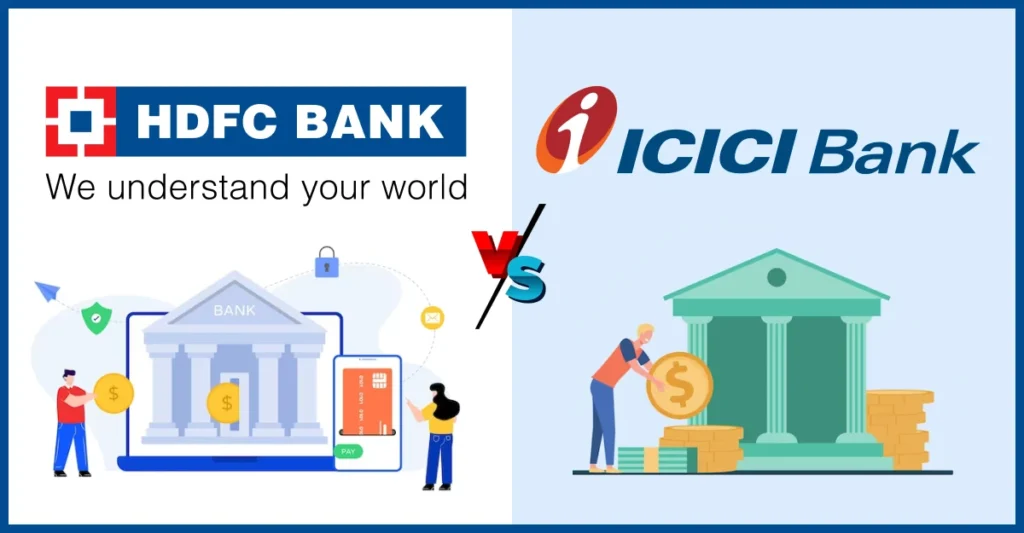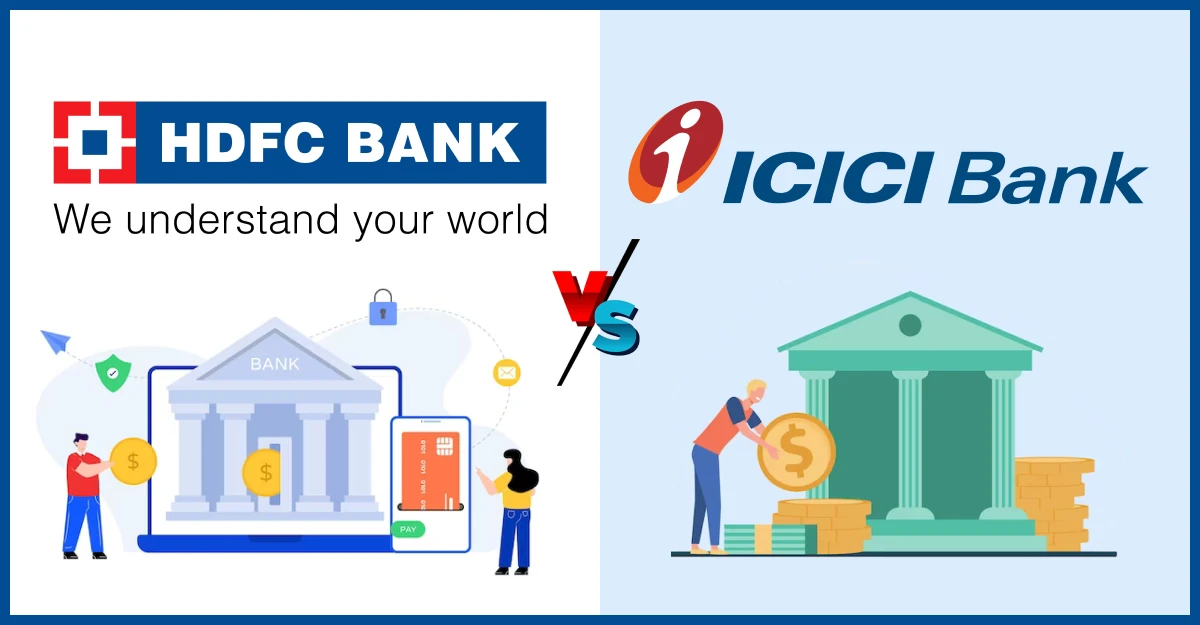ICICI Bank vs. HDFC Bank: Can One Really Outshine the Other in 2024?

Comparing ICICI Bank and HDFC Bank:
| Bank | Strengths | Weaknesses |
|---|---|---|
| ICICI Bank | Lower Valuation, Improved Asset Quality, Focused Corporate Lending | Brand Perception Lag, Limited Branch Network, Volatility Concerns |
| HDFC Bank | Unmatched Brand Value, Superior Branch Network, Strong Profitability | Valuation Gap, Merger Uncertainties, Limited Corporate Lending Exposure |
As you can see, both banks have their own set of strengths and weaknesses. ICICI Bank is a good option for investors who are looking for a lower-priced stock with a strong focus on corporate lending. HDFC Bank is a better choice for investors who are looking for a more stable stock with a strong brand reputation and a wide branch network.
For years, the Indian banking landscape has been dominated by two titans: ICICI Bank and HDFC Bank. With both boasting impressive financials, dedicated fanbases, and cutthroat competition, investors are often left wondering: which one is a better buy? In 2024, this question takes on even greater significance as the banking sector navigates uncertain economic waters.
Here’s a deep dive into the strengths and weaknesses of each bank, aimed at helping you make an informed decision:
HDFC Bank:
Strengths:
- Unmatched Brand Value: HDFC enjoys a well-established reputation for customer service, financial stability, and a robust digital infrastructure. This translates to consistent growth in retail banking and a loyal customer base.
- Superior Branch Network: With a nationwide reach and aggressive branch expansion plans, HDFC is better positioned to tap into semi-urban and rural markets, fostering greater loan growth potential.
- Strong Profitability: While not significantly higher than ICICI, HDFC’s stable returns, and lower credit costs provide investors with a sense of confidence and stability.
Weaknesses:
- Valuation Gap: Compared to ICICI, HDFC trades at a premium, raising concerns about potential downside risk if growth expectations fall short.
- Merger Uncertainties: The proposed merger with HDFC Life throws up some regulatory hurdles and potential integration challenges, adding a layer of complexity to the investment thesis.
- Limited Corporate Lending Exposure: HDFC’s primary strength lies in retail banking, making it more vulnerable to economic downturns that impact consumer spending.
ICICI Bank:
Strengths:
- Lower Valuation: Trading at a lower price-to-earnings ratio than HDFC, ICICI offers the potential for a higher upside if it can maintain its recent growth momentum.
- Improved Asset Quality: ICICI’s past struggles with bad loans seem to be in the rearview mirror, with significant improvement in risk management and asset quality metrics.
- Focused Corporate Lending: ICICI’s strong presence in corporate banking provides exposure to diversified sources of income and helps balance economic fluctuations.
Weaknesses:
- Brand Perception Lag: While catching up, ICICI’s brand image still suffers from past issues, potentially affecting customer acquisition and market share.
- Limited Branch Network: Compared to HDFC, ICICI’s branch footprint is smaller, especially in rural areas, which might limit growth potential in certain segments.
- Volatility Concerns: ICICI’s historical volatility might make some investors apprehensive, though recent performance suggests a more stable trajectory.
So, who wins?
Neither bank definitively outshines the other. Both have their own set of strengths and weaknesses and the “better buy” depends entirely on your individual risk appetite and investment goals.
For risk-averse investors seeking stability and brand value, HDFC might be the preferred choice.
For those comfortable with higher volatility and looking for potential upside, ICICI offers a compelling valuation and growth story.
Ultimately, the choice between ICICI and HDFC is a matter of personal preference and careful analysis of your investment goals and risk tolerance. Before making your decision, consider conducting thorough research and consulting with a financial advisor.
Remember, the Indian banking landscape is dynamic, and both ICICI and HDFC are likely to continue evolving. Stay informed, make informed decisions, and don’t forget to diversify your portfolio!
Disclaimer: This blog post is for informational purposes only and should not be construed as financial advice. Please consult with a qualified financial advisor before making any investment decisions.
FAQs: ICICI Bank vs. HDFC Bank in 2024
Which bank has a better brand reputation?
ICICI’s past issues have impacted its brand, but recent improvements are narrowing the gap.
Which bank offers higher potential returns?
HDFC’s premium valuation leaves less room for upside, but its stable performance provides downside protection.
Which bank is more exposed to economic downturns?
ICICI’s focus on corporate lending provides diversification and helps mitigate economic fluctuations.
Which bank has a wider branch network?
ICICI’s smaller network might limit their reach in certain segments.
Which bank is a better buy for risk-averse investors?
ICICI’s higher volatility and lingering brand concerns might be less appealing to risk-averse investors.
Which bank is more suitable for growth-oriented investors?
HDFC’s premium valuation limits potential gains but offers a more stable investment.
What are the key risks to consider for each bank?
ICICI: Brand perception lag, smaller branch network, historical volatility concerns.
Remember: Choosing between ICICI and HDFC depends on your individual goals and risk tolerance. Conduct thorough research and consult a financial advisor for personalized advice.
I hope these FAQs provide further clarity on comparing ICICI Bank and HDFC Bank in 2024!
